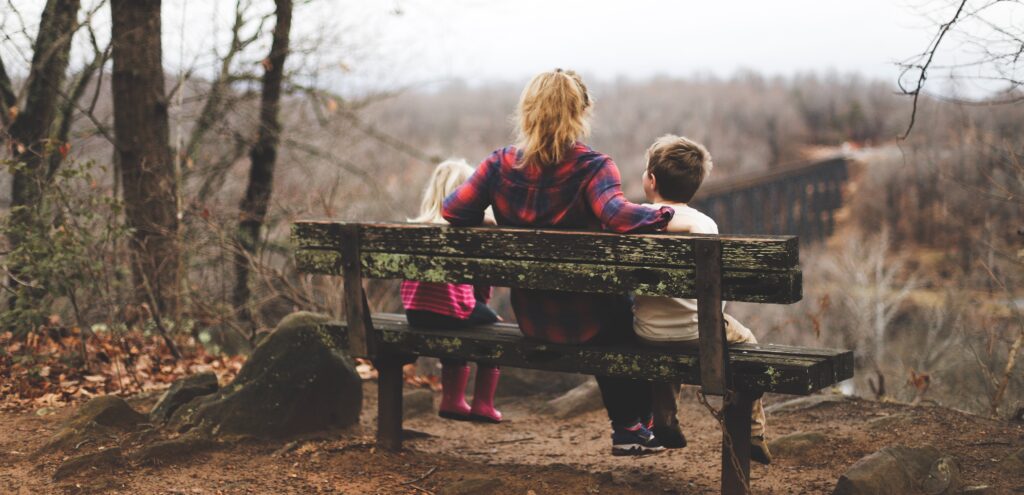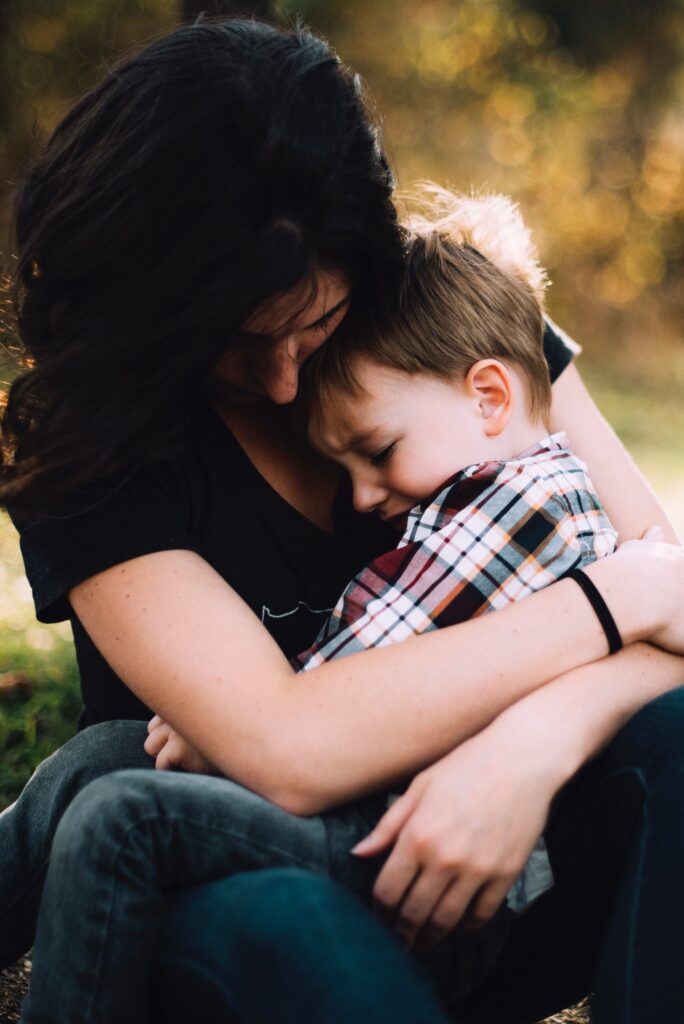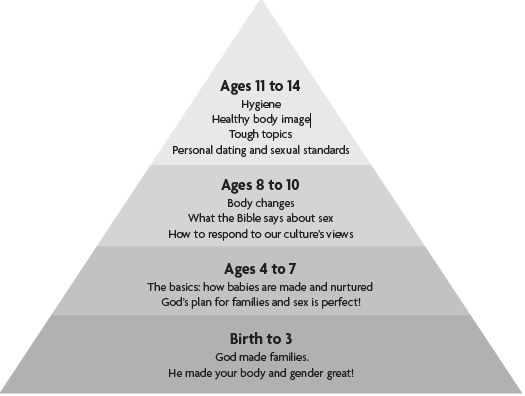
A friend asked me a good question in a roundabout way. Let’s say my child is in one of those seasons when they’re hard to love.
…Or even being a jerk.

A friend asked me a good question in a roundabout way. Let’s say my child is in one of those seasons when they’re hard to love.
…Or even being a jerk.

Question. What’s the one thing you wish about your family that feels like it would make everything better? That finally, your parenting could really sing?
What’s your “if only”?
Reading Time: 3 minutes

A few weeks ago, I needed to take my son in to have a couple of teeth extracted.
Can I just say this is not my favorite mom-job?
I held his hand during the injections, whispered “breathe” through his anxiety.
I remembered my own extractions when I was around his age, and other dental memories which would cause my hands to shake years after. So even getting in the car to take my son demanded some discipline.
Like any of us, I’ve had my share of these moments throughout parenting.
Driving up to Denver for scans to see if my son had cancer. Purchasing the plane tickets for our family’s move back from Africa. Enduring tough conversations with my disenfranchised teenagers in a local Starbucks, swallowing my urge to cry.
Sometimes, my mental image is that of Abraham asking Isaac to carry the wood up the mountain…that Abraham planned to sacrifice Isaac upon. Is it some form of cruelty? I wondered more than once about this story.
But here is what I know.
That wood on that son’s back was a forerunner of another man centuries later, bending beneath the wood to be used for his own sacrifice. In fact, that wood was so heavy and the man so depleted, he collapsed beneath its weight.
God, too, is used to doing hard things for his kids. Because love is brave. It overcomes for the sake of the beloved.
And there’s this: That man not only carried his own wood, he grew it from the ground. God watched as men mined and forged iron into spikes that would plunge into his Son’s wrists and feet, or literally into his Son’s heart. He was there the day some Romans hatched the idea of crucifying criminals.
But he also shaped the cave that would house Jesus’ body–and the stone that would both seal and unseal his tomb. He grew the garden around the tomb.
God created the means for both his own death and resurrection.
I mean, he also pressed seeds into earth to grow the trees–and their arboreal parents and ancestors–for the boat Jesus would sleep on, then rise from to calm gusts and waves from the weather patterns God had swirled together. He watched as the boat-builders learned and honed their trade.
I’ve learned what I share in this post about walking through a tough season for my son: That God, in orchestrating our suffering, ordains his own.
But he also ordains our resurrection and healing. And triumphs with us there.
Getting into the car together after my son’s procedures, I knew he didn’t just have the makings of a healthier mouth. Like a chick pushing through a shell, he had fledgling muscles he’d developed by doing hard things.
Good people, and good parents, can do that. And a good God does, too.
Lord, we pray we never find ourselves without hope, without a glimpse of the empty tomb each time we happen upon a cross. Help us begin our daily journey expecting both crosses and empty tombs and rejoicing when we encounter either because we know you are with us.
Spiritual Life Skills for Kids: Courage (with Book List & Printables!)
Blind Wrestlers, Cancer, and How Your Child’s Pain Could be a Gift
Guest Post: Helping Our Kids Turn Suffering into Praise
Bouncing Back: Helping Your Child Open the Gift of Failure
Reading Time: 4 minutes

One (just one) of the problems with writing a parenting book is the whisper spitting in my ear sometimes as I parent my oh-so-real-life teens. Like the one who yelled at me across the lawn this morning. (See? I’m wondering if I should have let you know that.)
Enter the Whisper: And you wrote a parenting book?
Even though none of that book hinged on my perfection or my kids’. Even though, as I’ve reread my own words, I wouldn’t reel any of them back in.
(Which says a lot. Often in life are words I wish I could reel in.)
And there’s this: If anything, parenting teens has underlined and added exclamation points all over the spiritual disciplines in Permanent Markers. And not one bit because I was the one to write them down.
I needed to teach every one of those principles to my kids–for this day. Right now. Spiritual disciplines and life skills are one way of preparing our kids, packing their metaphorical backpack for a day we don’t know they’ll need it.
A word picture, perhaps?
I admit to watching all aired episodes of This is Us. In one of the final episodes (spoiler alert, here), principal characters Kate and Toby’s legally blind three-year-old, Jack, is shown navigating the path to their Saturdays at the park.
Kate’s written a jazzy song about how exciting the park is–and all the dangers Jack, with the help of his cane, needs to dodge on the way, from the traffic to the dog turds.
At the beginning of the song, Toby asks if perhaps he and Kate should hold both Jack’s hands. But Kate insists Jack needs to find his way.
From everything to the curb to the buzz of the overhead electrical lines, preschool Jack feels his way to the park.
Later in the episode, the gate to Jack’s room is left unlocked on a different, chaotic day. As parenting days so often seem to be.
And Jack dons the red boots he always wears to the park, attempting to find his own way.
Understandably, the entire family is frantic. But even though Jack has wondered out into the world, and his parents are attempting to swallow sharp chunks of guilt–it is Kate’s song, worn into the ruts of Jack’s memory, that saves his life for an unexpectedly life-threatening afternoon.
That, and the help of a grandma who listened to Jack when he mentioned he always wore his boots to the park.
I cried buckets in this episode.
Because in all the ways I feel powerless as a parent, showing my kids ways to fall in love with God has protected their souls even when they feel out of reach. When I don’t really know where their souls are.
So things like teaching our kids to listen to the Holy Spirit, or to have self-control, or that the Bible is true?
Those lessons have shaped their brains when we as parents aren’t there at all.
Another one of those disciplines–community–has also anchored my kids, when mentors and yes, their grandparents, have gone out to find my kids when I don’t know exactly where to look, and the world feels so big.
Jesus’ Body, too, is a prerequisite for God-honoring parenting.
Like the story of the prodigal son in Luke 15, God has sometimes mapped out a path through a distant foreign land for our kids–in order for their relationship with God to become intimate.
(See, the prodigal son’s heart was far from his dad’s waaaay before he left. Why else would he hurt his dad by taking off with half his dad’s money?)
Please understand me: This is not some underhanded plug for my book. This to affirm you.
The ways you’re teaching your child like Deuteronomy 6 says–in the car, before bedtime, those long chats after school–are singing a song to them, wearing ruts in their brain.
And it’s not just preparing your kids for the good things it will do: So they can teach Sunday School someday, or so they resist temptation at their locker one afternoon, or so they’re ringing a bell for the Salvation Army in the cold at Christmas.
It’s also so they are safer on a dangerous day. So they remember their way.
At the risk of this post being a bit dark: A couple of years ago, I watched my friend progress through the nightmare of her husband’s stage four kidney cancer. From diagnosis to the day she became a widow—and single mother of three—took just over 100 days.
One night, as I transferred the children to their grandparents and we lamented the agony of their reality, her mother remarked that in her mind, she could still see my friend running around in footie pajamas as a child.
I realized we never know what life skills, what knowledge of God our kids might need in the future for which today must prepare them.
The days were indeed long, and the years short when that window was blissfully wide open for me to teach my kids a love of God.
Don’t phone this one in. Keep teaching them God’s ways–for the day you can’t see coming.
What kind of [spiritual] personal training does your child need?
7 Easy Ways to Disciple Your Teens a Little More
Spiritual Life Skills for Kids: Courage (with Book List & Printables!)
Reading Time: 4 minutes

Author’s note: This week was one of those where I was pretty consistently busy nearly until bedtime. I would recommend this pace to pretty much no one.
But I continue to have real-life kids, like the one to whom I have been raising my eyebrows about chores three days in a row. Or whichever one left a fingernail clipping on my sofa. And the one I had to apologize to while editing this version of the post below.
So this post from way back in 2015 came to mind. Remembering some of my own parent fails made me laugh out loud. Hopefully, they’ll give you a grin you need today.
Whatever parent fails you face this week, and however eye-rolling or utterly overpowering: God’s grace is big enough.
Yep. Even for that one.
***
As I was noodling on blog post ideas, my son with ADHD was having an epiphany of his own.
His chore was cleaning out under the bed, which I highly advise on a regular basis if your children’s Tazmanian-devil style of activity tends to whirl things into deep crevices beneath furniture, as mine does.
My son, however, recovered a pack of markers. So he thought of what any red-blooded boy would: What if my big toe were colored completely green?
Well, he found out. As did we all.
Parent fail #1: Toe-shaped, grass-green prints all over Grandma’s carpet. And a great reason to only purchase washable markers.
Good grief.
So, in the vein of ushering the Gospel into our lives—where we’re honest about our failures and looking them in the eyes, in light of who God is—I have decided to post for you 25 parent fails, inspired by real life. Mostly mine.
Even as I compiled this list, my husband looked at me.
“Well, isn’t God bigger than all our failures? I mean, not like that makes them not failures, or not bad.”
But a strange peace blankets me in my parent fails, knowing that my kids’ ultimate safety and well-being doesn’t stop with me. If this hits a sore spot, check out Grief as a Parent: What to Expect When You Didn’t Expect It.
As Andree Seu so aptly writes, “I started out wanting to be my children’s savior, and ended up pleading for forgiveness.”
That said: a completely uncomprehensive list of it’s-okay-parent-fails.
9 But he said to me, “My grace is sufficient for you, for my power is made perfect in weakness.”
Therefore I will boast all the more gladly of my weaknesses, so that the power of Christ may rest upon me.
10 For the sake of Christ, then, I am content with weaknesses, insults, hardships, persecutions, and calamities.
Reading Time: 3 minutes

Valentine’s Day for kids: I 100% get the dilemma.
How can you make it special, make them feel loved–when you’re just trying to get kids to eat mashed potatoes with a fork, or get their shoes on the right feet?
I’m piling in here a few easy ideas to make Valentine’s Day for kids pop–without a lot of extra effort.
Remember: Moments like these are about communicating your affection to kids, and creating memories together that say, I see you. You’re special to me.
When you look at it that way, the rose-colored glasses from every Pinterest activity can slide off.
That priority helps me sift out the activities that could steal my joy or expend energy I don’t have, leading to the kind of Valentine’s Day I hope they don’t remember. (Yikes.)
Take a page from Romans 12:3, and look at yourself, and your schedule, with sober judgment. What can you really do, and still be able to “love sincerely” (Romans 12:9)?
Don’t look on Insta at what your friends are doing for their kids. Lay down your heart-shaped super-parent cape. And feel free to order absolutely nothing pink last-minute from Target.
And just be the parent your kids need, who shows them God’s smile.
Hopefully, this can hand your kids a few ideas to love on other people.
Milkshakes, cake pops at Starbucks, bowling, mini-golf if you live in a place warmer than I do. Don’t overthink it or overspend it; I’m not saying you need to blow your wad at Build-A-Bear.
The goal here is memories together, feeling loved.
…or a coupon for the date above. Grab an easy fill-in-the blank/circle-all-that-apply printable template here to keep it fun, easy, and hopefully meaningful.
You could
You see where I’m going here. Think, Hey, I could do this.
Don’t miss this: My kids don’t need more. They need just a few gestures of kindness.
And it’s great if they can be the givers of those gestures, too.
Spring Break Kids’ Activity: The Newlywed Game (FREE PRINTABLE)
Ideas for Kids on Holiday Break (& Teens, Too)
The “Fun Parent”: Why (& How) to Get Weird with Your Kids
Reading Time: 6 minutes

As I’ve mentioned, oh, 76 or so times, I have four teenagers in the house. Which means we have very little of some things (leftovers, tranquility, time, clean laundry), and a lot of other things (drama, chips and salsa, deodorant, hormones).
And as the culture around them accelerates to 5G-speed–despite my kids’ lack of a fully-developed frontal lobe–my husband and I are working hard to keep communication open.
One person likened the teenage years to a space shuttle losing contact with the control center as it re-enters the atmosphere. You try to have the whole thing aligned before radio silence. But man, everyone’s biting the ends of their pencils until that next transmission.
That said, for teens, the stakes of their decisions skyrocket. At the risk of sounding disparaging to teens–who have so much to offer the world–these kids were eight years old five years ago. And they now possess the capability to hamstring their lives with a single decision.
(You might like this article I penned for FamilyLife.com on Parenting and Control: How Not to Hold On Too Tight.)
Sex is one of those areas where as a parent, you feel like your kids have been given the keys to a Camaro, but they’ve only learned driving techniques online. And they’re still sitting on a phone book to reach the steering wheel.
So maybe you’re wondering when to tell kids about sex. When’s it too early? When’s it too late?
I’m snagging excerpts for this one from my book, Permanent Markers: Spiritual Life Skills to Write on Your Kids’ Hearts.
I remember one Christian mom laughing, telling me her elementary-aged kids saw a commercial mentioning sex, and asked her what it was.
She insisted the commercial was about grocery sacks.
But really–when’s a “good” time for kids to ask? Do we want them to figure out we didn’t tell them the truth when they asked about sex?
Pause. Where do we want our kids to get this information?
Parenting kids toward holy sexuality involves a series of conversations to shape their worldview and create open, truthful, shame-free communication.
On my African back porch one afternoon, a friend’s and my own fingers curled around toasty warm mugs of ginger tea that exhaled ribbons of steam. She sort of asked the air around us if it was called rape if a boyfriend forced you. My grip on my mug tightened as her anecdote continued.
But I never talked to my parents about it. They left sex ed to my fifth-grade teacher, and my boyfriend was the one who showed me the rest. My family doesn’t talk about that kind of stuff.
I grieved with my friend, recognizing the gravity of what was taken from her.
Later, the situation begged the question: Is there anything on my parental “off-limits conversations” list?
So this influences how I respond when my kids ask questions. I try to wring the freak-out from my face, and review my mental list of How to Deal: What I Believe About Awkward, Hairy Topics with Children.
• I want to be the go-to gal (just as my hubby wants to be the go-to guy) for this stuff with my kids. How I deal with it now affects whether they ask later. It will only get funkier as they get older.
• I want to help them construct their own biblical worldview, assembled not once but piece by piece as we apply each issue to real life, with Scripture informing them. As in, not Google or the kids at the back of the bus autofilling the blanks in their minds. Do I really want my kids to wing it in this area?
• Evil is not only outside our kids. It’s within us because sin is part of us. Therefore, protecting my kids isn’t enough. Working with the Holy Spirit, I must shape their consciences.
Of course, we should have these conversations privately so our kids aren’t perpetually wishing they could burrow beneath the carpet. But questions are an open door to talk about Scripture as we “walk by the way” (Deuteronomy 6:7) to the maximum level of what’s age appropriate.
Some of the best parents I know aren’t necessarily those who withhold information in an attempt to protect their kids. They don’t glance around for a fire escape from the awkwardness. They take their child’s hand and show them how to navigate difficulty. These conversations secure trust and honesty. They communicate, I will always tell you the truth. We’ve got a good thing going here, so come to me with anything.
Talking to our kids gives them vocabulary to talk maturely about emotions, sticky situations, money, sex, and real life. They’re then less likely to be swayed by peers or lies in the midst of their decisions and more likely to know how the Word applies to every situation.
So watch your tone like a hawk.
Will kids get the idea sex is “the Dirty” (as one friend’s parents called it), or shameful? Or that God made our genitals and desires on purpose, for deeply rich marriage relationships? Will we honor marriage and sex (Hebrews 13:4)?
But this is another area where even the most careful, wholehearted, wisely informative training still involves leaving the results up to God. Our kids may make painful sexual decisions—or fall victim to someone else’s. Over and over, sexuality is an opportunity to trust and reiterate the power of God’s mercy and undeserved kindness to humanity. Sexuality can acknowledge he is always greater than human failure and frailty, a God drawing beauty from ashes.

From Permanent Markers: Spiritual Life Skills to Write on Your Kids’ Hearts (Harvest House). (C) 2021 Janel Breitenstein.
As parents, we aim to uphold 100 percent of God’s holiness and 100 percent of our and his approachability and acceptance amid failure and tsunami levels of shame.
If our children experience homosexual temptation or transgender thoughts or get snagged in porn, will they distance themselves and go to elaborate lengths to make sure we never find out?
A pastor struggling with same-sex attraction writes, “Christians struggling with SSA often feel especially ashamed and embarrassed…We often feel too dirty to be in community with others, or to be in communion
with God.”
So with your tone and body language, throughout your kids’ lives and countless open, unshocked-face conversations, communicate essential truths:
Read: “When to tell your kids about sex” is now. And it’s an ongoing conversation.

Grab the whole chapter, plus resource lists and practical ideas, in the book! If you’d like a free first chapter, enter your information in the upper-right corner of this website’s sidebar.
Fences, Sex, & Not-so-bad Boundaries
Guest post: The Hole Truth: Peer Pressure, Sex, and the Connection to Our Kids’ Identity
Reading Time: 5 minutes

I paused on the stairs today, peering at this photo of my sons eating hot dogs in Halloween costumes at a Trunk or Treat.
The one on the left, in the fireman costume, is now a Marine in infantry training, rucking five kilometers this week with about forty pounds on his back.
The tiger on the right turns seventeen in two weeks. He’s a starting lineman for the football team.
It hurt a little to look at that photo. I was so very tired those years, but man, I miss those boys, those cheeks, those curls, those days with them tucked beneath my arms to read picture books.
With four kids under five (you read that right), a good portion of my younger adulthood resembled a baby wipes commercial. Because everything. Needed. Wiping.
It was that season of life where a gal might accidentally offer to cut her husband’s meat, or think of responding “sleep” when someone asks a hobby she’d like to pursue. Where life is punctuated by Goldfish crackers, Cheerios are wedged in baffling places, and one might glare at the dog when the dog wants out, because one carries no further capacity to keep something else alive.
They can also be very lonely years–because you’re just trying to brush your teeth or shower before someone dumps the Lincoln Logs, which would then skewer the feet of the hot-water heater repairperson (not to be confused with a hot repairperson. Wrong blog).
When someone attempts to hold an adult conversation with you,
Or maybe you’re a homeschooling parent, like I was for years, where occasionally the four walls start pinching you in.
How can stay at home parents (SAHPs) surmount isolation?
I’ve got a few ideas–but first, keep this in mind.
Perhaps because I seriously struggle with craving others’ approval–I know being with friends ≠ feeling known and connected.
That is to say, SAHP or not, you can have lots of time with other adults and remain alarmingly alone.
After all, parents–SAHPs included–can struggle with judginess in their own right, because the stakes feel so high for what we’re doing. Don’t miss Under pressure: Militant mommy convictions vs. authentic friendship.
So resist the urge to go into crazy cleaning mode when friends come over, or break into a sweat about the spit-up you discovered on your shirt two minutes before they arrive.
Our relationships tend to need more fingerprints on the wall, less mascara or macho.
Just like judging can beget judging, authenticity begets authenticity. So breathe easy when your child yells for you to wipe them during your attempt at a deep conversation at last.
The more unplugged you keep things, the easier it is to get together spontaneously. Because you don’t need the breakfast table cleaned up, the diaper pail emptied, or to wear something other than yoga pants or a stained T-shirt.
Keep it real, and communicate your friends can, too.
As I’ve previously confessed–at times, friendships for me have seemed a much bigger risk than being alone. But this flies in the face of God’s design for us to live as a Body.
(If your pancreas was just doing its thing outside of connection to the rest of your body, this would be a problem, no?) As 1 Corinthians 12 reminds us,
The eye cannot say to the hand, “I have no need of you,” nor again the head to the feet, “I have no need of you.” (v. 21)
If you struggle to want the risk of friendships, consider reading Who Needs Friendships?
For some of these ideas, you may be like, um, hey. Who’s gonna watch the kids while I’m gallivanting around, finding a hobby (that’s not sleep) or whatnot?
Compared to past cultures, ours profoundly lacks methods of parenting in community. (If you’re a single parent, you may struggle with this more than most. )
We’re not harvesting or grinding grain together with kids playing at our feet. We’re not working in a woodshop while our kids learn a trade, with neighbors stopping in. Many of us aren’t living in the same home with our parents or grandparents or aunts or cousins. We’re not even walking to our next destination, chatting along the road.
Your life largely consists of you and your spouse behind closed doors and rolled-up vehicle windows.
As a young mom who associated her own needs with shame, I struggled to ask my husband for the relief my body pleaded for as a SAHP. I did, however, take my mom up on her offer to watch the kids one day a week. I chose to work outside of my home that day–and it unquestionably made me a better mom.
That said–
All There: Tips on Being Fully, Powerfully Present
© 2024 THE AWKWARD MOM
Theme by Anders Noren — Up ↑